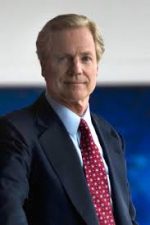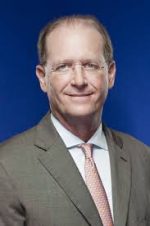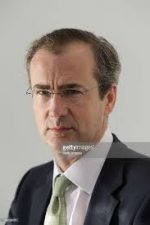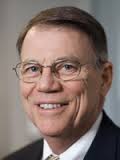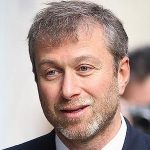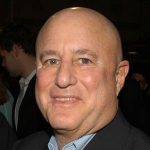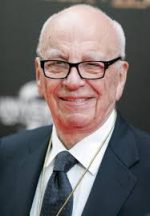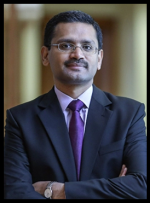Richard L. Carrión Rexach (born November 26, 1952) is the current Chairman and CEO of Popular, Inc., parent company of Banco Popular de Puerto Rico, Banco Popular North America and E-Loan.
Early life:
Carrión was born and raised in Puerto Rico. His grandfather was one of the founders of Popular, Inc. (BPPR). He received a bachelor's degree from the Wharton School of Finance and Commerce in 1974 and an MS in Management Information Systems from the MIT Sloan School of Management in 1976.After the master's degree, Mr. Carrión joined Banco Popular in 1976. After his father's death, Carrión became the leader of that banking corporation.
Popular, Inc.
Richard L. Carrión is the Chief Executive Officer and Chairman of the Board of Popular, Inc., a publicly traded financial holding company with more than $45 billion in consolidated assets. Today, Banco Popular, a wholly owned subsidiary of Popular, Inc., is Puerto Rico's leading depository institution, the largest Hispanic-owned bank in North America, and one of the 30 most important financial institutions in the Americas. As CEO, Carrión has led the way through numerous innovations in the company such as its expansion through the Caribbean, Latin America and the United States.
While Mr. Carrión was President of Banco Popular, Popular completed the acquisition of various financial institutions, including Banco de Ponce, Banco Roig, Seminole Bank, First State Bank of Southern California, Gore Bronson Bancorp in Chicago and Aurora National Bank. At the time of the acquisition, Banco de Ponce was the second largest bank in Puerto Rico. Recently, he also headed Popular’s recent acquisition of Quaker City, a savings and loan holding company for Quaker City Bank, based in Whittier, California, and Kislak National Bank, a Florida-based commercial bank.
In the information technology arena, Carrión’s vision brought the first network of ATMs to Puerto Rico and many other Latin American countries, and also spearheaded the successful migration from paper to electronic transactions. In 1999, after the acquisition of GM Group, Inc., the largest data processing center in the Caribbean, Popular consolidated its leadership role in the technological arena, thus creating EVERTEC, a new leader in information technology.
As of May 24, 2010, Popular Inc.'s board of directors announced that David Chafey, Jr., president and chief operating office would no longer be employed by the company. The board appointed Chairman and Chief Executive Richard Carrión as President. The company added that the position of Chief Operating Officer would not be filled at this time.
Philanthropy:
For almost three decades Mr. Carrión has divided his time between Popular and philanthropy, placing particular emphasis on education and sports. He is the founder and trustee of the Banco Popular Foundation; which, among other charities, has donated scholarships to over 1,000 students through the Rafael Carrión, Jr. Scholarship Fund. He currently served on the board of directors of the Puerto Rico Telephone Company and Verizon. Since 1992, Carrión has also been involved in the production of music videos that highlight Puerto Rico's musical culture and history. In 2007, he was appointed a member of the International Basketball Federation (FIBA) Finance Commission.
Mr. Carrión has also contributed to improving Puerto Rico's public education system. He participated in Sapientis Week, an initiative sponsored by the non-profit Sapientis which brings distinguished public figures into classrooms in order to raise the public's awareness of the education crisis in Puerto Rico.
International Olympic Committe:
He has been a member of the International Olympic Committee (IOC) since 1990 and currently chairs the Finance Commission and is a member of the IOC’s Marketing, TV and Internet Rights Commissions. Mr. Carrión led the negotiation team for the U.S. broadcast of the 2010 and 2012 Olympic Games - generating $2 billion in revenue - and was elected to the IOC Executive Board in 2004. He was one of the torch carriers for the 2006 Winter Olympics in Torino, Italy.
From 1987, he and the Puerto Rico Olympic Committee led a fight to try to bring the 2004 Summer Olympic Games to San Juan. That bid failed, however, when Athens was voted in 1997 as the city to host those games.
In 2012, Carrión awarded Javier Culson with the bronze medal for the 400 m hurdles and Jaime Espinal with the silver medal for wrestling freestyle 84 kg at the 2012 Olympics. Culson and Espinal were the first Puerto Ricans to win Olympic medals outside of boxing.
Candidacy for IOC President:
On May 22, 2013 Richard Carrión confirmed that he would run for President of the IOC. At the 125th IOC Session in Buenos Aires, Carrión secured 29 votes in the final round of voting, but lost the election to Thomas Bach.
Richard Dana Fairbank (born 18 September 1950) is an American businessman who founded Capital One with Nigel Morris in 1988, and is its Chairman and CEO. He also serves on the board of directors of MasterCard International, and is the Chairman of MasterCard International's U.S. Region Board of Directors. He is a member of the Stanford Business School Advisory Council, the Financial Services Roundtable, and the board of directors of the BITS Technology Forum.
Fairbank has been awarded Washingtonian’s "Business Leader of the Year", Worth’s list of the top 10 CEOs and "50 Best CEOs", Future Banker’s list of "influential personalities in financial services", Credit Card Management’s "Entrepreneur of the Year"; and The Gartner Group’s "Excellence in Technology."
Education:
Fairbank received a bachelor's degree in Economics from Stanford University in 1972, and an MBA from the Stanford Graduate School of Business in 1981, where he graduated first in his class, as well as receiving the Excellence in Leadership award from the University in 2006.
Compensation:
While CEO of Capital One Financial in 2009, Richard D. Fairbank earned a total compensation of $6,076,805, which included no base salary, no cash bonus, $2,000,019 in stock awards, $4,000,001 in option awards, and $76,785 in other compensation. In 2012, Fairbank's total compensation was $22.6 million. Fairbank has received a base salary of zero dollars since 1997.
Born : May 2, 1955 (age 61), Galveston, Texas
Alma mater : University of Houston–Clear Lake, (B.A.)
: South Texas College of Law, (J.D.)
Occupation : Chief Executive Officer of Delta Air Lines
Salary : US$725,000[1]
Spouse(s) : Sue Anderson
Children : Katy and Rick
Richard H. Anderson (born 1955) is an American businessman and is the former Chief Executive Officer of Delta Air Lines, serving his position from September 1, 2007 until May 2, 2016. Delta operates an extensive domestic and international network serving over 330 destinations in over 60 countries on six continents.
Prior to his role as Chief Executive of Delta, Anderson has served in previous executive positions as CEO of Northwest Airlines from 2001 to 2004, which would later merge with Delta and Executive Vice President of United Healthcare from 2004-2007.
On February 3, 2016, Delta Air Lines announced Anderson would retire as CEO effective May 2, 2016 and assume position as Executive Chairman of the Delta Air Lines board of directors.
Robert Montague Noel (born 12 June 1964) is a British businessman, the chief executive (CEO) of Land Securities, the largest commercial property company in the UK.
Early life:
He is the eldest son of Henry Methuen Noel Noel (1927–1998), an Army officer and a fellow of the Chartered Institute of Secretaries, and Helen Elizabeth Anne Hutchinson. Noel was educated at Marlborough College. He went on to study at Reading University and graduated with a bachelor's degree in 1986. is a qualified chartered surveyor.
Career:
On 31 March 2012, Francis Salway was succeeded as chief executive of Land Securities by Noel. Noel had been managing director of the company's London properties, having joined Land Securities in January 2010 from Great Portland Estates plc, where he had been property director since 2002.
Noel has had other roles as chairman of the Westminster Property Association, a Director of The New West End Company and a trustee and director of the charity LandAid.
Personal life:
Noel and his French wife Sophie have a son and two daughters, and own homes in London and Frinton-on-Sea, Essex. Noel has a tattoo on his bottom (believed to be a swallow), obtained in Thailand in his youth
He is one of the richest entrepreneurs who made their wealth in the Internet. He is the owner of Baidu, the largest search engine in China and the third largest in the world. The technology behind Baidu is an algorithm developed by Li that allows for site scoring and ranking
Rodger O. Riney (born 1946) is the CEO and founder of Scottrade, an online discount brokerage firm headquartered in St. Louis, Missouri.
Early life:
Riney was born in 1946 and was introduced to the stock market by his grandparents after giving him 10 shares of a stock. He attended college in the 1960s and worked in the financial services industry. He interned at Edward D. Jones & Company.
Riney earned a Bachelor of Science in Civil Engineering and a Masters in Business Administration from the University of Missouri. He and his wife, Paula, are members of Kirkwood Baptist Church in St. Louis County, Missouri.
Scottrade:
After the deregulation of the brokerage industry in 1975, Rodger saw an opportunity to provide lower commission trades. In 1980, he founded Scottrade in Scottsdale, Arizona under the name of Scottsdale Securities.
In 1982, Scottrade branched out from Scottsdale, Arizona, promoting discounted commissions for trades placed by telephone. Riney introduced internet trading in the 1990s. Scottrade has over 500 branch offices nationwide and offers managed services for clients who are seeking fee based advice. The company offers a full range of banking services to retail clients and makes commercial loans to small business.
Riney's management methods are described as conservative. He stated his intention to maintain private ownership and is against merging. In 2013 Scottrade was cited as 53rd in the top 100 companies to work for.
He is the owner of Millhouse LLC. He started out by stealing fuel intended for the Russian Army. He then made different investments, from doll making to providing bodyguard services. He is also the owner of the London-based football club called Chelsea. He is one of the richest men in Russia.
He is the owner of MacAndrews & Forbes Holdings Inc. He has investments in different industries and fields, from cigar, makeup, cars, photography, camping, security, lottery, banks and even comic books. He is also one of the largest donors to charity every year.
Keith Rupert Murdoch (born 11 March 1931) is an Australian-born American media proprietor. His father, Keith Arthur Murdoch, had been a reporter and editor and a senior executive of the Herald and Weekly Times newspaper publishing company covering all Australian states except New South Wales. After his father's death in 1952 Keith Rupert Murdoch declined to join his late father's registered public company and created his own private company, News Limited. Murdoch thus had full control as Chairman and CEO of Global Media Holding Company News Corporation, now the world's second-largest media conglomerate, and its successors, News Corp and 21st Century Fox, after the conglomerate split on 28 June 2013.
In the 1950s and 1960s, Murdoch acquired a number of newspapers in Australia and New Zealand, before expanding into the United Kingdom in 1969, taking over the News of the World, followed closely by The Sun. Murdoch moved to New York City in 1974, to expand into the U.S. market; however, he retained interests in Australia and Britain. In 1981, Murdoch bought The Times, his first British broadsheet, and became a naturalized U.S. citizen in 1985 to satisfy the legal requirement for U.S. television ownership.
In 1986, keen to adopt newer electronic publishing technologies, Murdoch consolidated his UK printing operations in Wapping, causing bitter industrial disputes. Murdoch's News Corporation acquired Twentieth Century Fox (1985), HarperCollins (1989), and The Wall Street Journal (2007). Murdoch formed the British broadcaster BSkyB in 1990, and during the 1990s expanded into Asian networks and South American television. By 2000, Murdoch's News Corporation owned over 800 companies in more than 50 countries, with a net worth of over $5 billion.
In July 2011, Murdoch faced allegations that his companies, including the News of the World, owned by News Corporation, had been regularly hacking the phones of celebrities, royalty, and public citizens. Murdoch faces police and government investigations into bribery and corruption by the British government and FBI investigations in the U.S. On 21 July 2012, Murdoch resigned as a director of News International. On 1 July 2015, Murdoch left his post as CEO of 21st Century Fox. Murdoch and his family own both 21st Century Fox and News Corp through the Murdoch Family Trust.
Early life:
Murdoch was born Keith Rupert Murdoch on 11 March 1931 in Melbourne, Australia to Sir Keith Murdoch (1885–1952) and Elisabeth Joy Greene (later Dame Elisabeth Murdoch) (1909–2012), daughter of Rupert Greene. He is of English, Irish, and Scottish ancestry. Murdoch's parents were also born in Melbourne. Keith Murdoch was a war correspondent and later a regional newspaper magnate owning two newspapers in Adelaide, South Australia, and a radio station in a faraway mining town. Later in life, Keith Rupert chose to use Rupert, the first name of his maternal grandfather.
Keith Murdoch the elder asked to meet with his future wife after seeing her debutante photograph in one of his own newspapers and they married in 1928, when she was aged 19 and he was 23 years older. In addition to Rupert, the couple had three daughters: Janet Calvert-Jones, Anne Kantor and Helen Handbury (1929–2004). Murdoch attended Geelong Grammar School, where he was co-editor of the school's official journal The Corian and editor of the student journal If Revived.He took his school's cricket team to the National Junior Finals. He worked part-time at the Melbourne Herald and was groomed by his father to take over the family business. Murdoch read Philosophy, Politics and Economics at Worcester College, Oxford in England, where he supported the Labour Party, stood for Secretary of the Labour Club and managed Oxford Student Publications Limited, the publishing house of Cherwell. After her husband's death from cancer in 1952, Elisabeth Murdoch did charity work, as life governor of the Royal Women's Hospital in Melbourne and established the Murdoch Childrens Research Institute. At the age of 102 (in 2011), she had 74 descendants. Murdoch completed an MA before working as a sub-editor with the Daily Express for two years.
Rajesh Gopinathan was born in 1971. He is the CEO and Managing Director of Tata Consultancy Services (TCS), a worldwide IT administrations, counseling and business arrangements association. Rajesh is probably the most youthful chief in the Tata Group. He was raised to the part of Chief Executive in February 2017 subsequent to filling in as the Chief Financial Officer since 2013.
Rajesh Gopinathan was born into the world in Thrissur, Kerala. He lived in Lucknow till his twelfth class and concentrated in St. Mary's Convent Inter College, RDSO branch. His dad used to work for the Research Design and Standards Organization (RDSO) wing of the Indian Railways. Rajesh graduated in 1994 with an Electrical and Electronics Engineering certificate from the Regional Engineering College, Tiruchirappalli (presently National Institute of Technology, Tiruchirappalli).
In 1996, he got a post-graduate confirmation in Management (PGDM, equivalent to a MBA) from Indian Institute of Management Ahmedabad. He also won many awards. In 2021 - he win India's Best CEO in the classification of super huge organizations by Business Today (India). He joined the Tata Strategic Management Group in 1996, where he worked at numerous tasks with Tata organizations.
